Reimagining Life After Retirement Means More than Financial Planning
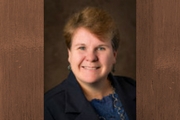
For many, it’s an achievement waiting at the end of a long career. For some, it may be a dream that slowly slips out of reach. Others enjoy what they do so much, they hope to never stop working. While still others can be reluctantly forced into it.
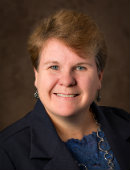 Regardless of where one might exist between these various quadrants, it is clear that retirement is a complex and dynamic concept.
Regardless of where one might exist between these various quadrants, it is clear that retirement is a complex and dynamic concept.
“There are all these nuances,” says Dr. Angela Curl, assistant professor of social work in Miami University’s College of Education, Health and Society (EHS). “It can be great for some people, but for others it can be a difficult transition. That is when problems occur.”
Some problems, for example, might include feelings of emptiness for those without many interests outside of work, or even the health risks that can arise as a result of slowing down. Studying many of these issues has been a pillar of Curl’s work, especially as they relate to how productive social engagement intersects with the wellbeing of older adults.
Her research has explored an array of retirement-based health risks, changing family dynamics, the barrier of age discrimination, how public policies can impact retirement, and various lifestyle transitions, which can require extensive planning to manage successfully.
And it’s much more than just financial planning.
“There is this concept of anticipatory socialization, this idea of getting ready to be in a different role or experience,” Curl explains. “A lot of times we don’t think about what that will look like or how the transition will be.”
Beyond Finances: A Quick Guide to Some Key Considerations
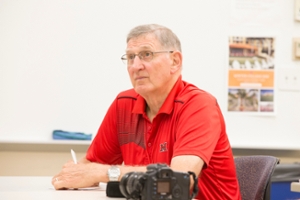 The notion that people work for a few decades and then retire after some basic financial planning in between is a dramatic oversimplification. Money is only the first gateway to what can lead to an entirely new and, sometimes, unexpected life.
The notion that people work for a few decades and then retire after some basic financial planning in between is a dramatic oversimplification. Money is only the first gateway to what can lead to an entirely new and, sometimes, unexpected life.
“How do we financially prepare, emotionally prepare, and educationally prepare for this transition?” Curl asks. “How do we balance those different areas of life and how do we prepare for that next step?”
So beyond finances alone, here are some thoughts to consider throughout a planning process that can vary between different professions, personal goals, and individual circumstances.
Decide what retirement means for you
Retirement can vary from context to context, and from person to person. Even the meaning is fluid. Curl has uncovered “wildly different” definitions and many of the most traditional do not describe the full spectrum of possibilities.
“Some people who went into the military worked their 20 years and now they are 38 and retired,” she says. “Others who work 100 hours a week, maybe then only work 40 hours a week and then they say are ‘retired.’ So we need to realistically look at what it means to be retired.”
Starting this thought process early can help people visualize the kind of life they want to live after retirement.
Acknowledge changing family dynamics
In some cases, retirement means abruptly breaking a routine that may have been in place for decades, which can also impact interactions between friends and family.
“Retirement does not happen in a vacuum,” Curl notes. “If one person retires, it affects both people if they are married. If they are living with other family members, or even if they are not, it can still shift expectations.”
Family members might, for example, expect more frequent visits. Or a spouse might expect an increase in household chores, while the retiree might be looking forward to more leisure activities.
“It is really a good idea to talk about preferences and expectations,” says Curl. “Whether you are an individual or part of a couple, thinking about some of these changes is important because then you can negotiate them, instead of getting upset.”
Be aware of potential health risks
Curl’s research has found that health tends to decline after people stop working. She found that self-reported health ratings for married couples declined during the first few years of retirement. And that the longer husbands were retired before their wives too retired, the worse their self-reported health ratings became.
“My general findings are that maintaining work is good for health, and that is consistent with other findings,” Curl says.
This suggests that people should pay more attention to health-related factors such as spousal interdependence, length of time since retirement, and how to potentially stay engaged through paid or unpaid post-retirement activities.
Explore opportunities for social engagement
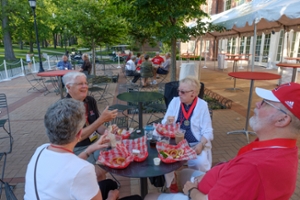 According to Curl, many people are busier in retirement than they were previously. But not everyone. Some people expect it to feel like an extended vacation with no clear idea of how to eventually spend their time. And once this initial “vacation” sensation wears off, it can sometimes lead to feelings of emptiness or even depression.
According to Curl, many people are busier in retirement than they were previously. But not everyone. Some people expect it to feel like an extended vacation with no clear idea of how to eventually spend their time. And once this initial “vacation” sensation wears off, it can sometimes lead to feelings of emptiness or even depression.
“Social engagement is interacting with family and friends and community in a social way as opposed to being isolated,” Curl says. “Productive engagement is work volunteering and care-giving. And even though volunteering might not be for everybody, there are opportunities for involvement and the idea of diversifying interests is a good one.”
Exploring and participating in a broader range of social activities can make time more rewarding and ultimately increase wellbeing.
Consider an encore career
“By switching careers in later life to work areas such as the public sector, education, health care, or a non-profit organization, an encore career can provide additional income while having a rewarding way to contribute to the community as well,” says Curl. “Encore careers provide options for social connections and meaningful engagement.”
Others choose to pursue self-employment or take on a part-time job, as a way to combat the darker side of retirement.
“Unfortunately, age discrimination is alive and well,” says Curl. “Some people think they are going to be able to continue working forever, especially at something they love. And that is not always the case.”
It’s also the perfect time to make other changes
Many people don’t realize that this transition can facilitate a fresh start in many other areas too.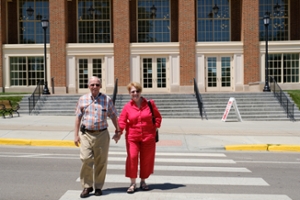
“Anytime you have a major life change, there’s also an opportunity for making other lifestyle changes,” Curl says. “When you are set in your ways, it is probably not the easiest time to make changes because you are comfortable and experiencing equilibrium. But when things are in flux, that is a great time to rethink how you do things.”
So retirement, in many ways, can open up entirely new avenues for a whole new life yet unlived. If, that is, people are willing to put in the effort and forethought needed to get the most out of it.
“We need to do more in terms of retirement exploration,” says Curl. “The concepts are shifting, but if people devote time to it like the time devoted into choosing their first career, then more people can enjoy this next phase of life.”
